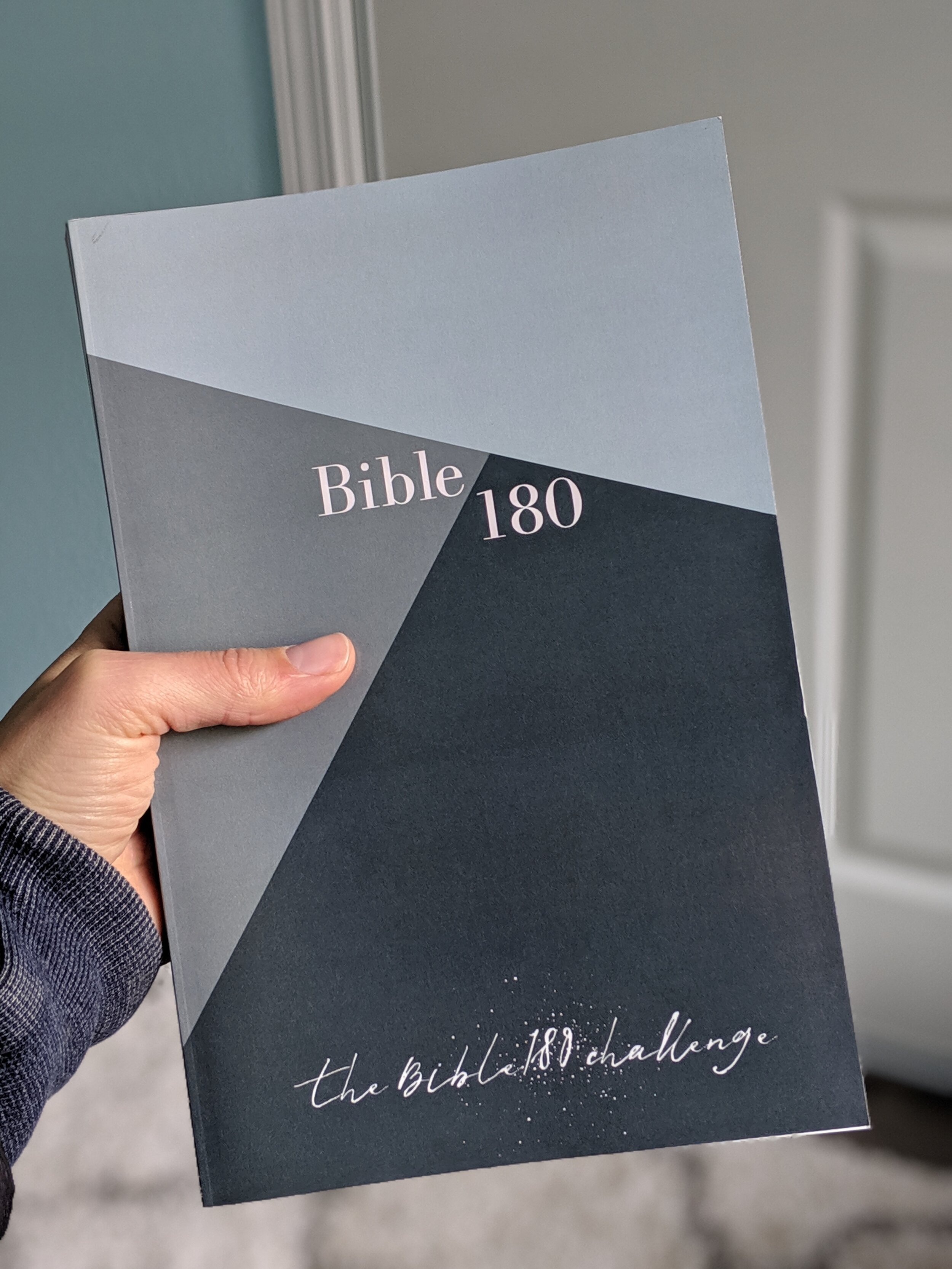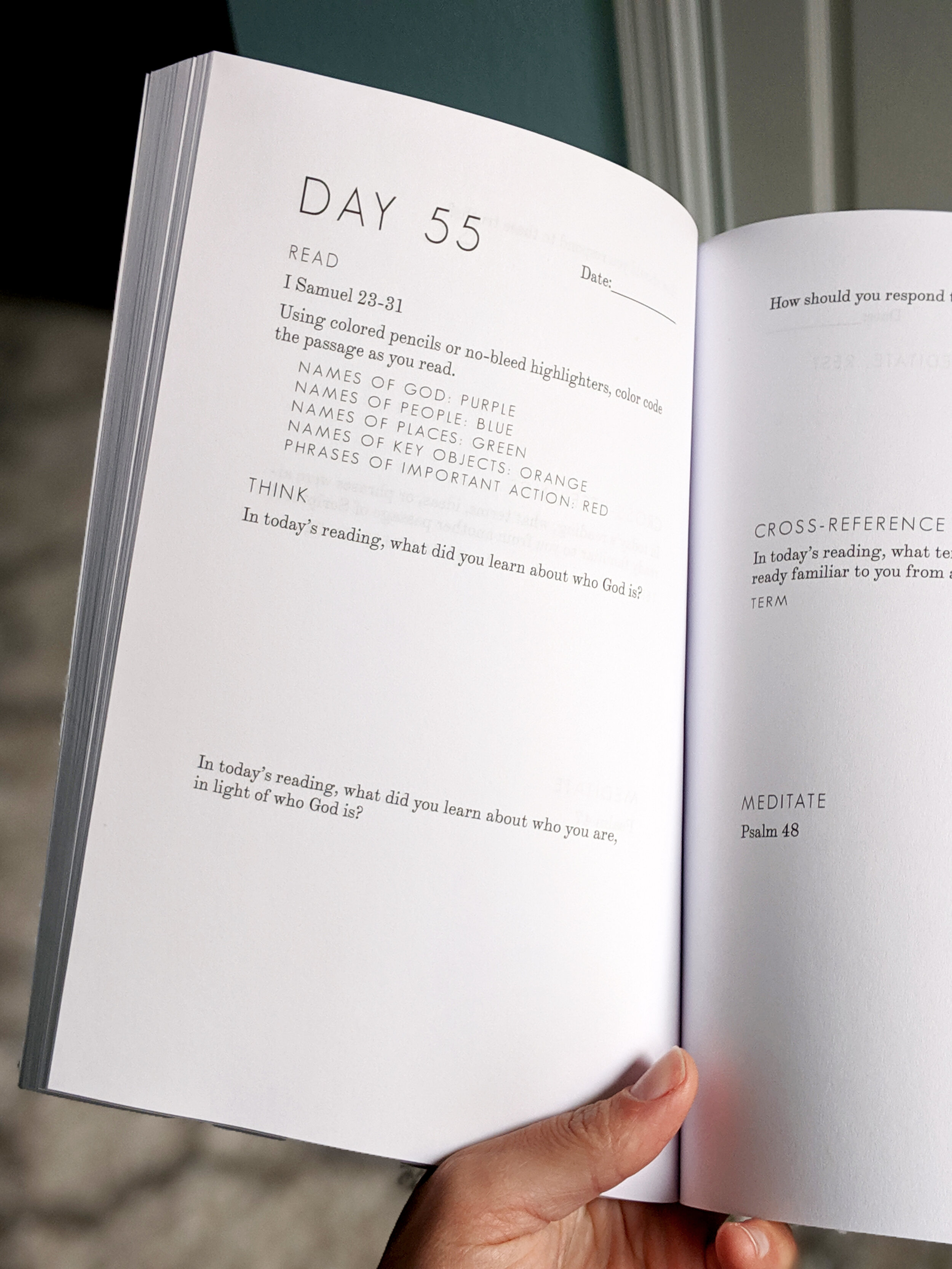how to study the Bible: discover the story
/In the history of this blog, three of the top five most-read posts have been related to the topic of knowing and studying God’s Word. I love nothing more than hearing someone say, “I’d love to know how to study the Bible for myself” - or, “I’ve been going to church and Bible studies for years but I’m just so hungry for MORE.”
The study of the Bible isn’t just for pastors and elders. God’s Word is not solely accessible to those who spend a decade in seminary learning ancient languages. I’m thankful for the people in my life who showed me that I, too, could learn how to study it for myself - because I was (and still am) hungry.
If you are hungry, too, this series is for you.
How to study the Bible
Step One: Read it.
I know, that’s not what you wanted me to say.
If someone said this to me seven or eight years ago, I would have responded, “That’s the point. I’m reading it, but I’m not getting it. There has to be more.”
Hear me out: You cannot learn how to study an ancient book such as the Bible if you have not read it. I’m sure you have read pieces of it - some of them probably dozens of times over. Perhaps you started a Bible in a Year plan, but petered out right around Deuteronomy (no shame, we’ve all done it). You may have even read through the entire Bible - but it took you a whole year or more, and by the time you got to that last chapter of Revelation, you couldn’t really remember the first part of the story anymore.
The single best thing I have ever done to enrich my study of the Bible (second only to actually going to Bible school) has been to make a practice of reading the text in large, chronological chunks.
There are a few reasons for this.
The Bible is a story.
By far, the most debilitating lie I once believed about the Bible was that it was a book about how to make God happy. It’s not a difficult lie to land on when you spent your childhood in Sunday school lessons that turn all the stories of the Bible into moralized fairy tales. I thought that the Bible stories were there so we could learn from how the characters did or didn’t make God happy, and that the rest of it was explicit instruction about pleasing God.
Reading the Bible as a single, unified story - not a collection of writings about how to be good - has relieved the incredible frustration I used to feel as I tried to wrestle extremely complex, often culture-bound stories and commands into nuggets of present-day moral application to my life. Instead, I can simply enjoy the process of following a timeless and cosmic story arc from beginning to end.
The foremost purpose of the Bible is to tell the story of who God is and what He has done.
When I started approaching the Bible as a story, and especially as the story of who God is, it finally began to take life for me. It was no longer a book of dead men’s names or a cryptic code to making God happy; each smaller storyline, each verse of poetry took on a new role in pointing back to the larger narrative at hand. I began to see God as not only the author, but the main character and the hero as well.
Reading the Bible as the story of who God is has prevented me from inserting myself into stories which were not written about me, or into instructions which were not written to me. Instead, I can receive the Bible as a gift that God has preserved for me, and an invitation to live by His wisdom and enjoy the blessings of His presence.
The Bible is an immense book which needs to be taken in on an immense scale.
There is a time and place for digging deep into just a few verses at once, but that time and place does not come until well after we’ve come to appreciate the full scope of the text. Huge portions of the Bible are written as narratives or histories, which require a sweeping view to be rightly understood. When I stopped reading only one chapter at a time, I could see how the storylines and thoughts progress from one chapter to the next, and notice the connections that tie all sixty-six books together. Nothing in the Bible exists in isolation from the rest of the Bible.
Reading the Bible on a much larger scale has kept me from cherry-picking verses to support the various beliefs I already held, or from reading God’s words through the extremely narrow lens of my own background. Instead, I can come to the Bible in humility, expecting it to change and challenge my preconceived ideas, emotions, and motivations with the unchanging Truth.
This first step of Biblical study is, for many people, the hardest. It takes the most time, by far. And it’s not something that you can necessarily do once and call it good - my study of the Word is the richest when I am reading through it, front to back, on an annual basis.
But I don’t love Bible in a Year plans. The goal of this step is to read in LARGE chunks, and the suggested daily readings across 365 days are usually only a handful of chapters. In addition, 365 days is a long time to retain what you read in January and still be making relevant connections between Genesis and Revelation when you get to the end of December.
The Bible180 Challenge
I created something called The Bible180 Challenge for this reason. It’s a challenge to read through the Bible in six months instead of twelve - with readings that vary from three to 15 chapters at a time, depending on book and genre - for the purpose of getting a sweeping bird’s-eye perspective on God’s story. It’s the best way I can recommend to kick-start a deeper independent study of God’s Word. I’ve done it several times now, and each time is a great refresher on this vast story, and shows me new facets of God’s heart.
What I love the most about running this challenge annually is hearing the testimonies of hungry people getting filled.
If you could use some help and accountability to complete this Step One of a healthy personal Bible study, I’d encourage you to sign up. It’s totally free, and just by entering your email address, you can get the full reading plan, a downloadable progress tracker, and a weekly email to keep you on track for the full 180 days. The challenge officially kicks off on January 1st, so enter your email address below to get on the list!
And, if you need an extra boost (or want to be an overachiever), I’ve created a brand-new tool for the 2020 challenge that will help you not only knock out Step One, but the upcoming steps in this How to Study the Bible series as well. It’s the Bible180 Challenge Journal - designed exclusively to make this challenge easier and even more rewarding for you. You absolutely DO NOT need to buy this journal, or any other special tool, to reap the rewards of reading your Bible in 180 days, but many of you have expressed a desire for a more analog and self-paced Bible180 experience. If keeping up with weekly emails and Facebook groups isn’t your thing, I created this for you.
Whether or not you decide to take the leap and join us for Bible180 this coming year, the fact remains: Nothing can enrich your study of the Bible like simply knowing it and reading it for what it is. The Bible is the story of WHO GOD IS. And who God is has the power to change everything for you and me.





